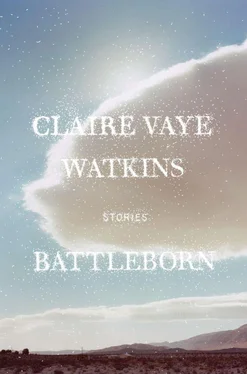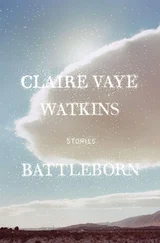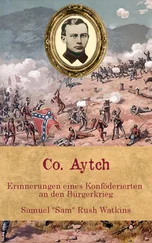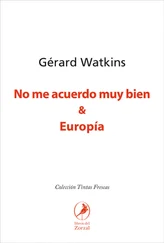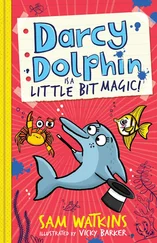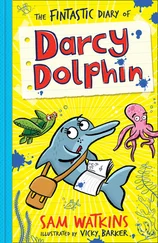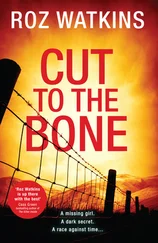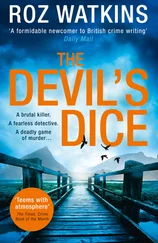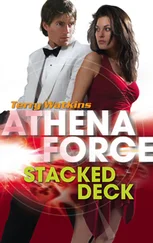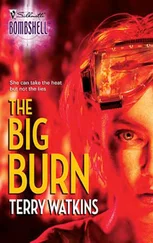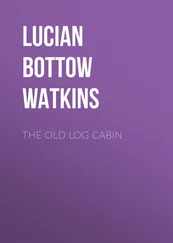It has gotten late, somehow. Marin kicks dirt inadequately over the coals of the fire and goes to bed.
In the RV she wedges herself on one side of the bed. Carter is on the other. Between them, the child. Eleven weeks old tomorrow. As long as Carter’s forearm. What does the child do? Lift his head. Reach. Speak in a tonguey language of all l s and o s. Lie between them. On the drive to the airport this morning, the sun still not risen from the horizon, Carter said, quietly, This is not how I pictured things.
There is so little room on this arrow of bed. She can feel the bundle of child beside her. She is light with youth, with once-love, and also heavy with the disintegration of these. In this specific gravity she slides into sleep.
She dreams she is wrestling with the copper retriever, groping in its mouth for the tennis ball. Grappling with Dingus on a rockless beach. Rolling through reeds. Green-gray follicles succumbing in the wind. They tumble. She is up to her elbows in the warm, wet lining of Dingus’s dog cheeks. She is laughing, rolling over mounds of perfect hot white sand. In her sleep she says, What does your baby like? In her sleep she says, This is not how I pictured things. In her sleep she rolls on top of the child and suffocates him.
She wakes, too terrified to scream, and begins to dig at the blankets. There are so many of them—hundreds. The soft, papery blankets of babies, the substantial bulky blankets of adults. They all smell of wet dog. Carter is there. Right there. He moans. Between them—somewhere—is the mass of her child. Their child.
Then her hands touch skin. A very small body. She feels it in the dark.
Breathing. Alive. Yes, alive.
She lifts the baby, not gently, and presses him to her. The child begins to cry.
Carter sits up in the darkness. Where? he says, thick-tongued and sleepstruck. Not what. Not who. Where? Where are you ?
The fifth of July. Milo slunk out and sniffed around the dry lake bed while Harris loaded his find into the truck. The bitch was a pound mutt—mostly Lab, was the old man’s guess—and the abandoned stash was a good one, like last night’s festivities never got to it. At least fifteen Pyro Pulverizer thirty-three-shot repeaters, a load of Black Cat artilleries and Screamin’ Meamies, some Fortress of Fire and Molten Core mortars, probably three dozen Wizard of Ahhhs and one Man-O-War, a hard-to-find professional-grade shell pack, banned even on Paiute land after an Indian boy blew his brother’s face off in ’99. It was a couple grand worth of artillery, all told. The largest pile Harris had ever found.
Every Fourth of July kids from Gerlach, Nixon, Lovelock, and Indian kids from the Paiute res came out to the Black Rock with their lawn chairs, coolers of Miller, bottles of carnival-colored Boone’s Farm for the girls. They built themselves a bonfire, got thoroughly loaded, and shot off fireworks. The lake bed had no trees, no brush, no weeds to catch fire, just the bald bottom of an ancient inland sea. They dumped their Roman candles and Missile Heads and Comet Cluster shells and Komodo 3000 fountains in a heap away from their encampments, out of range of the fires, then trotted out there whenever they wanted to light them off.
Except out here the night got so dark and the kids got so loaded they’d forget where they stowed their fireworks. They’d forget they even had fireworks. They’d drink like men, like their fathers and uncles, like George fucking Washington, take off their shirts and thump their chests and scream into the wide black space. Pass out in their truck beds and let their tipsy girlfriends drive them home all in a line. Leave their stash for an old man to scavenge come sunup.
Harris moved quickly now, working up a sweat as the sun burned the haze from the valley. He unbuttoned his shirt. Finished loading and ready to leave, he called Milo. He slapped his thigh. He whistled. But Milo didn’t come.
Scanning, Harris could barely make out a shape in the distance, warped by the heat waves already rising from the ground. He drove to it, keeping an eye on Ruby Peak so he’d know his way home. Out here a person could get turned around and lose his own trail, each stretch of nothing looking like the next, east looking like south looking like west, not knowing where he came on the lake bed, and not knowing how to get home.
The shape in the distance was Milo, as Harris thought it would be, bent over and sniffing at a heap of something. The truck rolled closer and stopped. Harris got out, softly shutting the door behind him.
“Come here, dog,” he said. But Milo stayed, nosing the pile.
It was a girl—a young girl, Mexican—lying on her side, unconscious. Maybe dead. Harris circled her. She wore cutoffs, the white flaps of pockets sticking out the frayed bottoms. She was missing a shoe, a thick-soled flip-flop. A white button-up man’s shirt tied in a knot exposed her pouchy belly. Her navel was pierced, had one of those dangly pink jewels nestled inside. Rising below the jewel was a bruise, inky purple, the size of a baseball. Or a fist.
Milo licked at the vomit in the girl’s black hair, matted to her head. Harris pushed the dog away with his boot and crouched over her. He laid his hand on the curve of her calf. Her skin was hot; the early morning sun had begun to burn her. She was breathing, he saw then, but barely. Her lips were dry and cracked white as the lake bed itself. No doubt she hadn’t had any water in God knows how long. Her dark fingernail polish was chipped. Fifteen years old, maybe sixteen, but she was wearing a truckload of makeup and he couldn’t tell with these kids anymore.
Harris shook the girl gently, trying to wake her. He looked around and saw no one, only dirt and mountain and sky. He poured some water from his jug and wet her lips with it. It was an hour and a half to the trailer clinic in Gerlach, and they couldn’t do much more for her than he could. His knees popped as he hoisted the girl and positioned her body across the seat of the truck.
“Let’s go,” he said, and slapped his thigh. Milo came then, slowly: sharp ears, bad eyes, bad hips, a limp of one variety or another in all four legs. Harris squatted and lifted the dog to the bed of the truck.
The truck sped for six, seven miles over the white salt crust of the lake bed. Harris watched absently for dark spots of wet earth. When it had the chance, the Black Rock held moisture as if it remembered when Nevada was mostly ocean, as if it was trying its damnedest to get the Great Basin back underwater. It would be near impossible to dig the truck out of the mud by himself, even with the squares of carpet he kept in the bed for traction. And there was no time for that.
The tires of the Ford crunched the dirt, leaving a pair of faint tracks. Harris turned and followed two tire-wide ruts of crushed sagebrush. The road shifted from weed to dirt to gravel. Harris bent and put his face to the girl’s. He felt her breath against his cheek. He turned once to check on Milo, her tail wagging against the fireworks he’d forgotten he’d come for.
The road shifted twice more: to State Route 40, that hot belt of shoulderless asphalt, and then to Red’s Road, the ten-mile stretch of gravel that led up the alluvial fan to Harris’s slumped brick house.
Harris carried the girl inside. She didn’t stir when he laid her on the couch, nor when he slipped her remaining sandal from her softly curled toes. Milo milled underfoot, sniffing at the sandal on the floor where Harris set it. “Don’t even think about it,” he said. The dog retreated to sulk in front of the swamp cooler.
Figuring it would make her more comfortable, Harris unknotted the girl’s shirt. Though he’d already seen the twin juts of her pelvis and the slope of her stomach—she wasn’t leaving much to the imagination—his hands fumbled and his breath went shallow while he buttoned the wrinkled flaps back together, not sure what he would say if, at that moment, she woke.
Читать дальше
